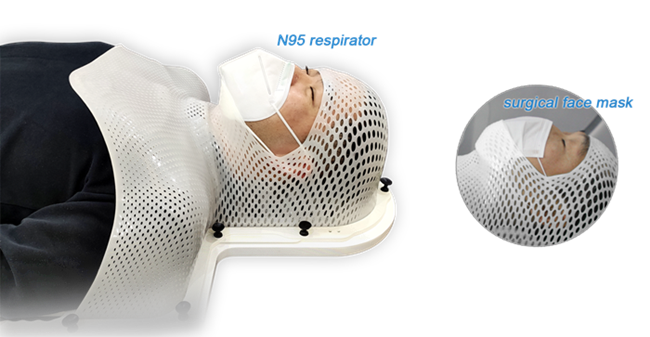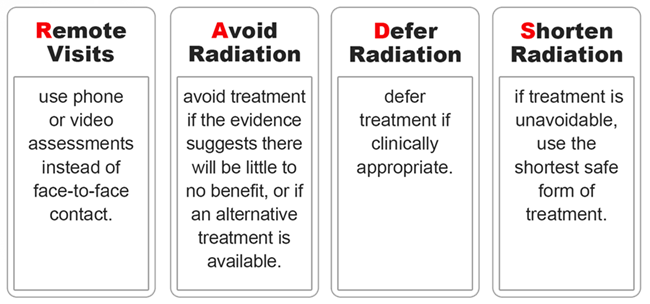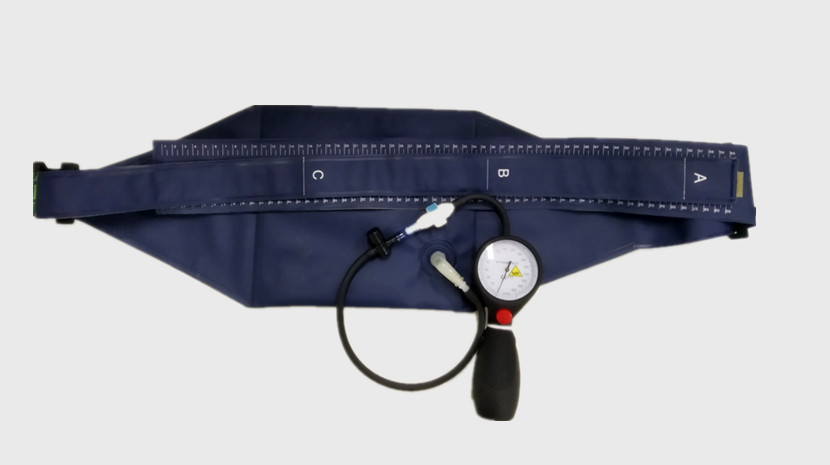
Personal Protective Equipment (PPE) including respirator/face mask is essential and vital to protect medical staff when they are contacting with patients. Many hospitals are now requiring all of their patients, visitors and staff to wear a face mask in the hospital to minimize the spread of COVID-19.

Open Face Thermoplastic Mask works well with a surgical mask
Visitor Restrictions: Many clinics in the severely affected areas are now taking measures including strict visitor restrictions.
In Mayo Clinic no visitors will be allowed in the hospital setting, emergency department or outpatient clinics. And in Cleveland Clinic no guests or visitors are permitted to accompany adult patients, unless special assistance is required.
Telemedicine / Telehealth is offered by most hospitals to reduce patients’ visit to hospital and allow healthcare providers working from home.
Grouping and separating patients to reduce risk*:
To minimize cross infection, set up and review facilities and treatment schedules so that patients can be scheduled for treatment based on their COVID-19 status.
Options include:
— scheduling treatment for patients with known or suspected COVID-19 at a specific time of day.
— scheduling treatment for patients who are at particularly increased risk of severe illness from COVID-19 (such as patients with lung cancer) at a different time from patients with COVID-19.
— If possible, have separate entrances and facilities for patients who do not have COVID-19 and for patients known or suspected to have COVID-19.
— Ensure treatment schedules can properly accommodate the cleaning needs for any areas used by patients with COVID-19.
* NICE (National Institute for Health and Care Excellence, UK):
COVID-19 rapid guideline: delivery of radiotherapy, published: 28 March 2020, www.nice.org.uk/guidance/ng162
RADS (Remote, Avoid, Defer, Shorten) principle is recommended to help plan individual patient radiotherapy*:

Hypofractionation has been demonstrated to be equally effective as standard conventional courses of radiation therapy in specific clinical situations. ASTRO supports the use of hypofractionated regimens in disease sites where the treating radiation oncologist determines it is a reasonable approach.
An NHS (National Health Service, UK) guideline: In all cases, the most clinically appropriate hypofractionated schedule should be used, for example single 8Gy fraction for metastatic spinal cord compression (MSCC). For adjuvant breast radiotherapy 26Gy in 5 fractions is isotoxic compared with 40.05Gy in 15 fractions and may mitigate a deferred start date in patients with node negative breast cancer.
Under these guidelines from the reliable resources, we are introducing a range of BETTER patient positioning solutions for radiotherapy centers to keep treating patients in a SAFER way during the pandemic.
Better protection | Less contact | Easier disinfection












